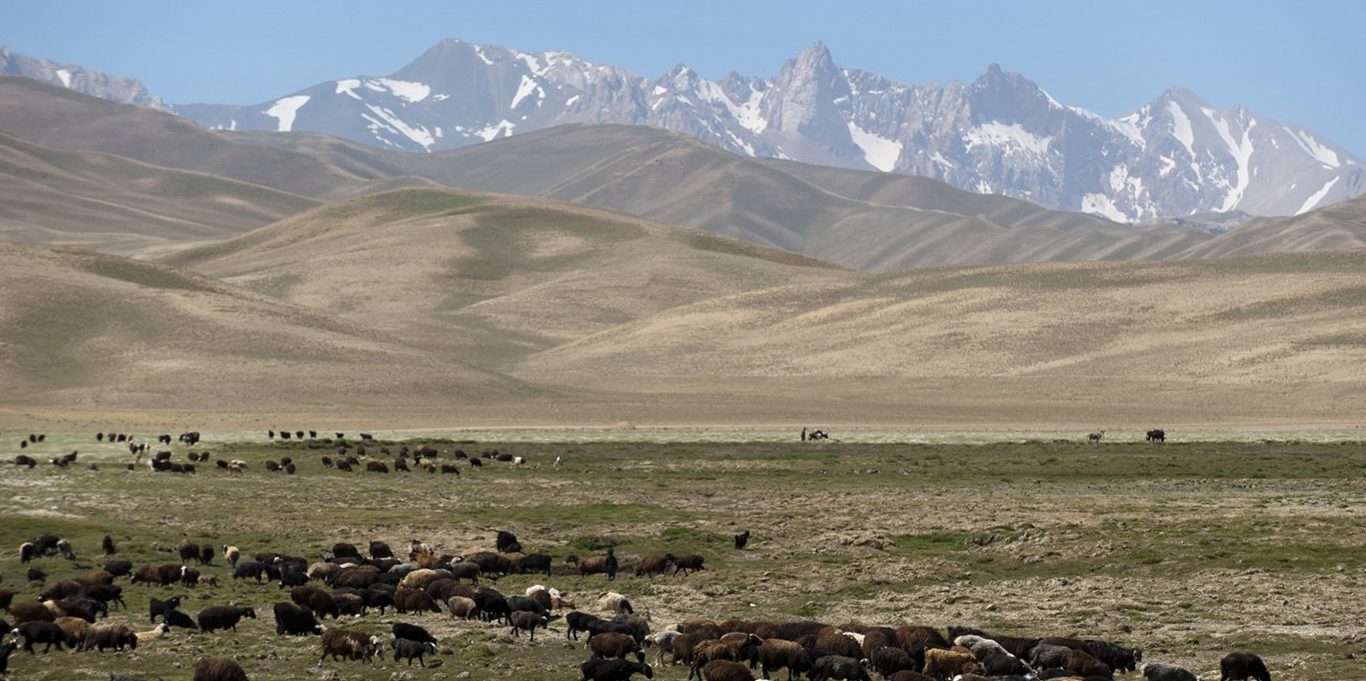This site uses cookies, as explained in our terms of use. If you consent, please close this message and continue to use this site.
 Between Bamiyan and Band-e Amir, Afghanistan. Existing research on ecosystem services in the HKH focuses mostly on biophysical elements of ecosystem services. There is limited coverage of sociopolitical aspects and the management of ecosystem services. (Photo: Alex Treadway/ICIMOD)
Between Bamiyan and Band-e Amir, Afghanistan. Existing research on ecosystem services in the HKH focuses mostly on biophysical elements of ecosystem services. There is limited coverage of sociopolitical aspects and the management of ecosystem services. (Photo: Alex Treadway/ICIMOD)
Hindu Kush Himalayan (HKH) ecosystems provide diverse ecosystem services to nearly two billion people in the mountains and downstream, across the Indus, Ganges, Brahmaputra, and other major river basins. These ecosystem services are indispensable for human wellbeing, particularly so in a region where 70–80% of the people live in rural areas and 60–85% are directly dependent on ecosystem services for subsistence.
Our new research article – a comprehensive systematic review of literature on ecosystem services in the HKH – delves into how scholarly works have covered this vital subject. We aimed to plug existing knowledge gaps by consolidating 439 peer-reviewed articles in 166 journals on ecosystem services in the HKH. We examined temporal trends, geographical distribution, authorship patterns, journal coverage, keywords used, and scholarly networks in ecosystem services research to establish where the studies have been focused, which countries are commissioning them, and which themes are being prioritized. With such analysis, we can guide our future research direction towards addressing important gaps.
We found that the research on ecosystem services in the HKH has advanced rapidly in less than two decades, in line with the growing global discourses on ecosystems. Of the articles reviewed, nearly 62% were published in the last five years. Most of the research on ecosystem services has been conducted in China, followed by Nepal and India.
Of the 1,460 keywords we reviewed, “ecosystem services” is the most commonly used, followed by “China”, “Nepal”, “conservation”, and “biodiversity”. Research institutions from 56 countries have networked to conduct collaborative research on ecosystem services in the HKH, with 1,386 authors in total. The existing body of research focuses mostly on biophysical elements of ecosystem services, with very few published studies covering its social and political aspects and the management of ecosystem services.
We believe that since ecosystem services is a multidisciplinary concept, a holistic, landscape-level understanding of the region regarding ecosystem services would help in identifying emerging themes and gaps, and in providing directions for future ecosystem services research projects and conservation investments in the HKH. This holistic approach requires a greater emphasis on social and political sciences, together with the biophysical sciences.
As the HKH region is home to diverse ecosystems shared by eight countries, we also need regional analyses of ecosystem services. Future research also needs to incorporate the local context to avoid the dominance of international perspectives and the marginalization of local concerns.
Stay up to date on what’s happening around the HKH with our most recent publications and find out how you can help by subscribing to our mailing list.
Sign Up